Amnesty International has called on Israel to immediately release Palestinian prisoner Khader Adnan, who has been held since December without charge under Israel's infamous policy of “administrative detention”.
The call came after Adnan, near death, ended a 66-day hunger strike when Israel signed a deal on February 22 agreeing to release the 33-year-old father of two by April 17.
-
-
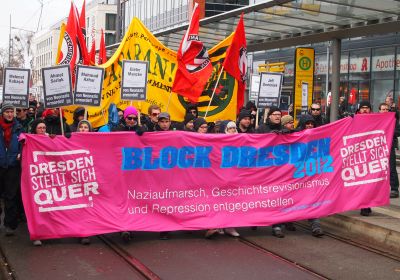 Ten thousand people mobilised in Dresden on February 18 to stop an annual march of European neo-Nazis. A broad coalition of political parties, church groups, trade unions and other anti-fascist groups formed a united front campaign to stop the planned neo-Nazi march through peaceful, mass blockades. Six days earlier, a group of more than 1000 neo-Nazis gathered in Dresden for a march supposedly to commemorate the innocent deaths caused by the 1945 bombing of Dresden by the Allied forces.
Ten thousand people mobilised in Dresden on February 18 to stop an annual march of European neo-Nazis. A broad coalition of political parties, church groups, trade unions and other anti-fascist groups formed a united front campaign to stop the planned neo-Nazi march through peaceful, mass blockades. Six days earlier, a group of more than 1000 neo-Nazis gathered in Dresden for a march supposedly to commemorate the innocent deaths caused by the 1945 bombing of Dresden by the Allied forces. -
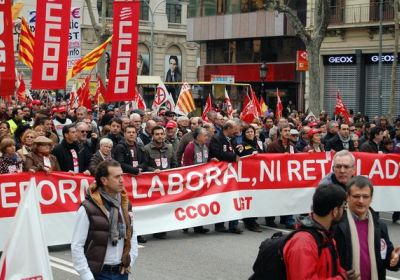
Will the Spanish economy benefit from Prime Minister Mariano Rajoy government’s anti-worker labour market reform?
-
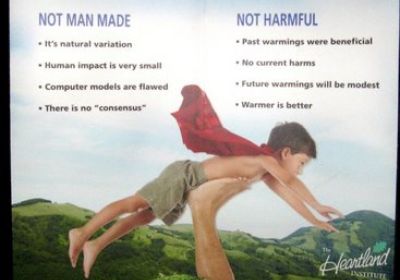 Powerful US free-market think tank The Heartland Institute is reeling after leaked internal documents were posted on the Desmogblog website on February 14 showing the powerful corporate interests behind its well-known campaign against climate science. Desmogblog said the leaked documents “expose the heart of the climate denial machine”, which “relies on huge corporate and foundation funding from US businesses”.
Powerful US free-market think tank The Heartland Institute is reeling after leaked internal documents were posted on the Desmogblog website on February 14 showing the powerful corporate interests behind its well-known campaign against climate science. Desmogblog said the leaked documents “expose the heart of the climate denial machine”, which “relies on huge corporate and foundation funding from US businesses”. -
In the early hours of February 17, about 1000 police and National Intelligence and Security Service (NISS) officers conducted a violent raid of Khartoum University’s student dormitories, arresting more than 300 students. Most were released later that day. Two students are missing, suspected kidnapped by the NISS. Some of the arrested students told a Sudan Human Rights Monitor press conference that police had used racist verbal abuse against students and many were beaten.
-
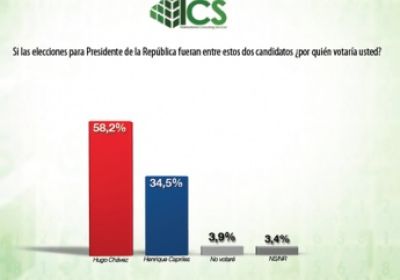 “The confrontation here isn’t between Chavez and this little man, it’s the bourgeoisie against the people, the empire against the country”, Venezuelan President Hugo Chavez said on February 16. Chavez was referring to his newly-nominated presidential opponent, Henrique Capriles Radonski. He was pointing to the class battle that lies behind the looming presidential elections scheduled for October 7.
“The confrontation here isn’t between Chavez and this little man, it’s the bourgeoisie against the people, the empire against the country”, Venezuelan President Hugo Chavez said on February 16. Chavez was referring to his newly-nominated presidential opponent, Henrique Capriles Radonski. He was pointing to the class battle that lies behind the looming presidential elections scheduled for October 7. -
How will Spain’s new labour "reform" — announced on February 10 by employment and social security minister Fátima Báñez and already in force as a royal decree before adoption by parliament—affect Spain’s workers and unemployed? First, imagine the essence of 30 years of Australian anti-worker and anti-union law — from Hawke’s Accord through Keating’s enterprise bargaining and Howard’s Workplace Relations Act to Work Choices and the Fair Work Act — but all rolled into one bill.
-
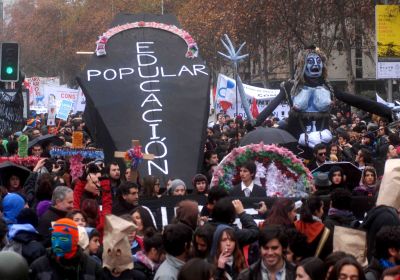 Huge student protests that broke out last year gave a tremendous jolt to Chilean society, as reflected even by public opinion polls. When La Nacion asked a group of poll takers to name the best thing about 2011, 63% answered the student and environment mobilisations, compared with just 17% who chose the University of Chile soccer team, which won the South American cup at the end of November. Just 3% chose the Cervantes Prize, the big Spanish-language literary prize, which was awarded to Chilean writer Nicanor Parra.
Huge student protests that broke out last year gave a tremendous jolt to Chilean society, as reflected even by public opinion polls. When La Nacion asked a group of poll takers to name the best thing about 2011, 63% answered the student and environment mobilisations, compared with just 17% who chose the University of Chile soccer team, which won the South American cup at the end of November. Just 3% chose the Cervantes Prize, the big Spanish-language literary prize, which was awarded to Chilean writer Nicanor Parra. -
The Cuban Institute of Friendship with the Peoples is inviting all friends of Cuba to join the sixth International Brigade of Volunteer Work and Solidarity with Cuba this May Day. The brigade runs from April 22 to May 6 this year. It aims to provide a wider understanding of Cuban reality and carry out volunteer work to support agricultural development in Cuba. The 15-day program includes visits to historical, economic, cultural and social places in Havana and the provinces of Artemisa and Pinar del Rio.
-
Six Zimbabwean socialists are charged with “inciting public violence” (which carries a maximum penalty of 10 years’ imprisonment). They were arrested on February 19 while meeting to watch video footage of democracy protests in Egypt and Tunisia. The February 16 letter from Zimbabwe below explains the latest developments. * * *
-
 Working class struggle is an important part of modern Chinese history, and is rising In a late industrialising country, the Chinese working class emerged and became organised only in the early 20th century after the country was forced to open up to global capitalism. However, shaped by harsh economic exploitation and foreign semi-colonial domination, China’s working class quickly established itself in the space of a few decades. This culminated in mass protests and strikes between 1925 and 1927.
Working class struggle is an important part of modern Chinese history, and is rising In a late industrialising country, the Chinese working class emerged and became organised only in the early 20th century after the country was forced to open up to global capitalism. However, shaped by harsh economic exploitation and foreign semi-colonial domination, China’s working class quickly established itself in the space of a few decades. This culminated in mass protests and strikes between 1925 and 1927. -
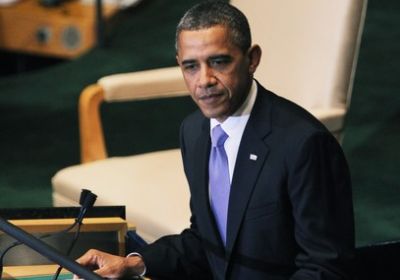 A United Nations Security Council (UNSC) motion condemning the Syrian regime's bloodshed and caling for a “transition to democracy” was vetoed on February 4 by Russia and China. United States officials condemned the move as “disgusting and shameful” and a “travesty”. The moral outrage expressed by the US was faithfully reported by the corporate Western media, which paid little attention to Washington’s own voting record in the UNSC.
A United Nations Security Council (UNSC) motion condemning the Syrian regime's bloodshed and caling for a “transition to democracy” was vetoed on February 4 by Russia and China. United States officials condemned the move as “disgusting and shameful” and a “travesty”. The moral outrage expressed by the US was faithfully reported by the corporate Western media, which paid little attention to Washington’s own voting record in the UNSC.